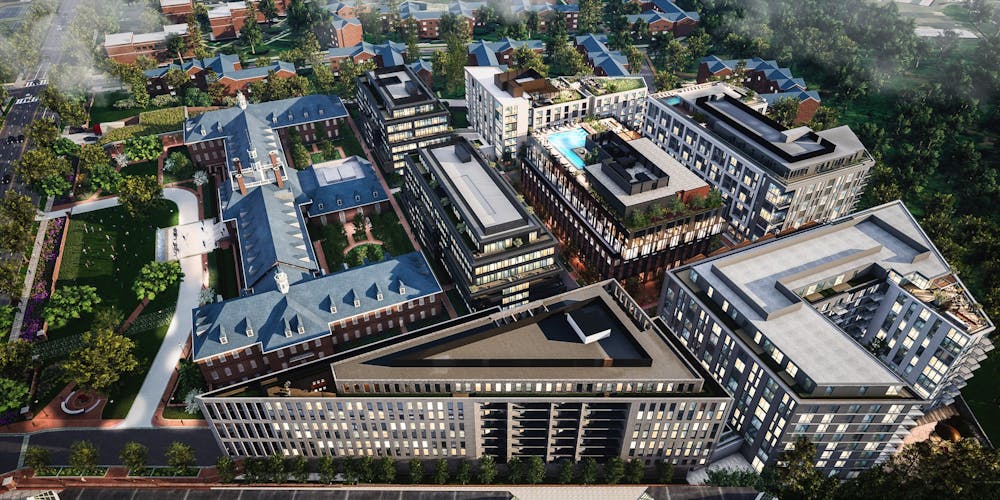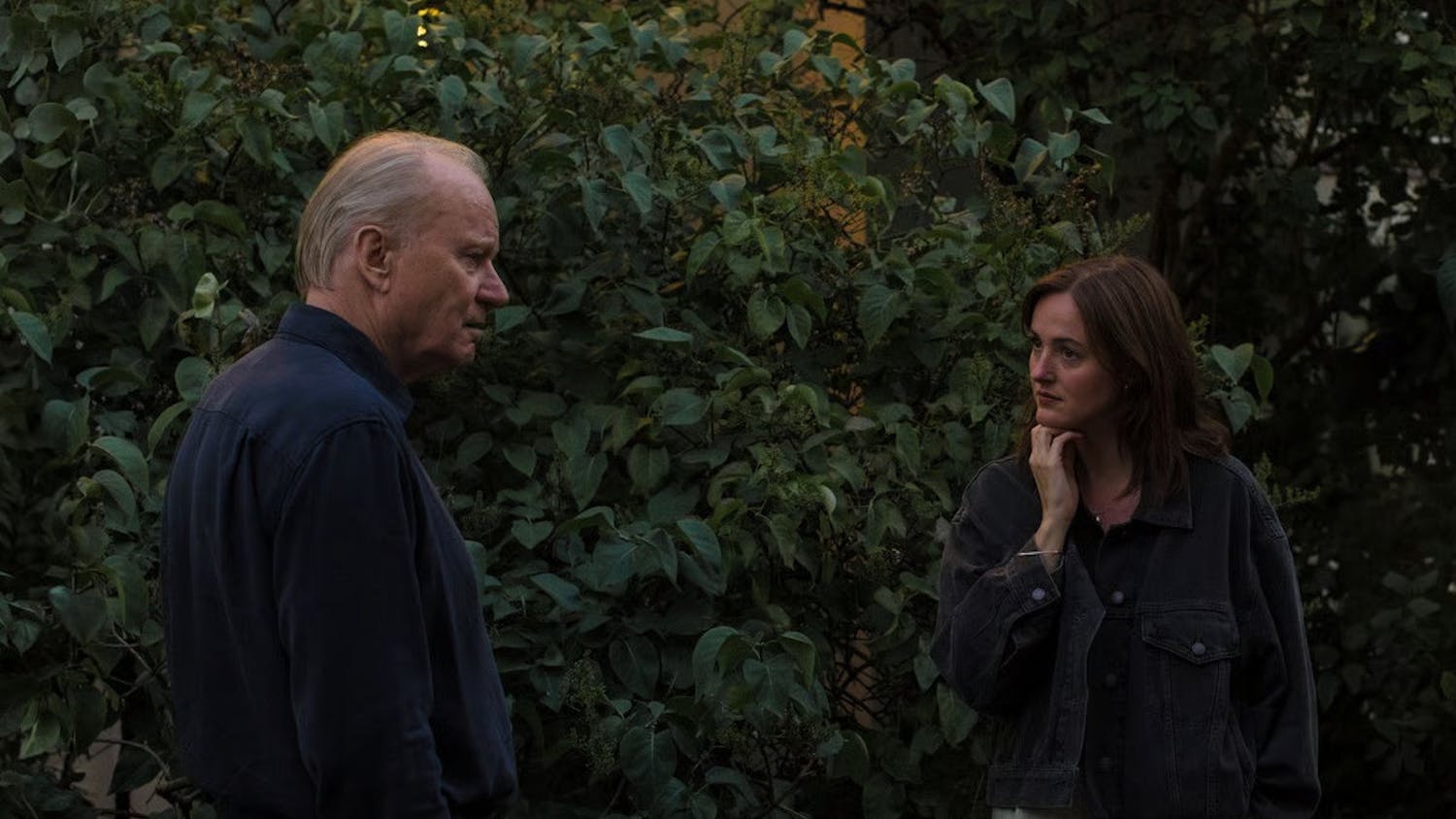Parts of the City Ridge development on Wisconsin Avenue are beginning to open, eight years after the property was purchased by the developer Roadside. The space is designed to create a community that caters to people’s daily needs through residential, retail and office spaces.
Spanning four buildings, 690 apartments ranging from studios to three bedrooms will house the residents of City Ridge. The studio apartments start at around $2,600 a month, with the 3-bedroom penthouses starting at around $10,000 a month.
Rob Wolcheski, the lead developer for Roadside, said housing options are available for students, as City Ridge is a mile away from American University’s campus.
The residential buildings, named The Branches, Botanica, Crescendo and The Coterie, include amenities such as rooftops, creator studios, greenhouses, fitness studios and more. Additionally, residents will be able to join The Ridge Club, the member-only pool and social club.
The development includes 154,000 square feet of retail space, including the 82,000 square foot Wegmans Food Markets which opened in early July. Additionally, the development will include a 30,000-square-foot Equinox gym.
City Ridge will also house restaurants ranging from Tatte Bakery & Cafe to Taco Bamba with 22,000 square feet of restaurant space. Wolcheski says retailers will be looking to hire AU students.
“We view the AU community as part of the broader neighborhood,” Wolcheski said.
Companies such as the headquarters for CAVA and Industrious will occupy 160,000 square feet of office space.
Development of City Ridge
Roadside LLC, the developer of City Ridge, purchased the property from the Fannie Mae company in 2016. In the following eight years, the property went under a $715 million redevelopment.
When the process began, Roadside began meeting with members of the community to hear feedback. Such feedback was used in the leasing process and the design of open spaces, according to Wolcheski.
Additionally, Roadside worked with the McLean Gardens development to create the Neighborhood Advisory Committee as a way for residents to share their questions and concerns about the development.
“I think that they are welcoming the surrounding community, which includes McLean Gardens, with open arms. I think they've integrated themselves nicely into their community,” Adam Hoyt, advisory neighborhood commissioner for District 3C06, told The Eagle.
Hoyt said he recognizes there may continue to be concerns about the construction and timeline of the development. However, Hoyt and Wolcheski both said lines of communication will remain open as City Ridge becomes more operational.
“It’s been a labor of love here to make sure that there are minimal disruptions to our daily lives, but also understanding that there is a massive project being completed just next door,” Hoyt said.
Throughout the development of City Ridge, Roadside worked to make the development process environmentally friendly. City Ridge is the first project in D.C., and the second nationwide, that received the LEED v4 ND for Gold Certification. The certification is awarded by the U.S. Green Building Council to neighborhoods that are created to be more sustainable.
Wolcheski says the certification came in part because of the stormwater management used at City Ridge. Storm water would typically run into the surrounding parks, impacting the trails and streams. The City Ridge development can retain up to 1.2 inches of rainwater on-site, with containers holding 260,000 gallons of water.
Affordable Housing
In the early stages of development, ANC3 encouraged Roadside to include 20 percent affordable housing in the residential buildings. Roadside included eight to ten percent of affordable housing that is required under the inclusionary zoning for the property.
“We worked with the confines of the existing zoning at the site,” Wolcheski said.
Seventy-five percent of apartments in Washington, D.C. are over $2,101 per month. In the McLean Gardens neighborhood, the average price for a studio apartment is around $1,850 per month. The average price for a studio in this area increased 36 percent in the last year, according to Rent.com.
Hoyt acknowledged that enough has not been done to provide affordable housing in Ward 3.
“It comes down to holding developers accountable when they want to build mixed-use spaces, making sure on the residential side of that that we’re doing all that we can to provide affordable housing as it’s been provided throughout the city,” he said.





